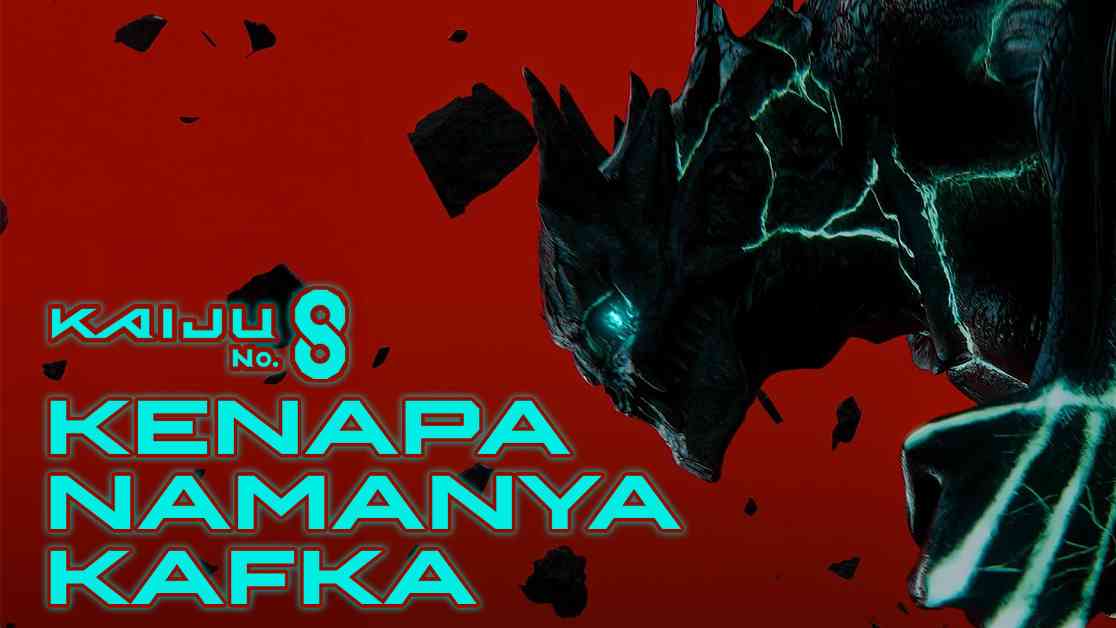Kaiju No 8: The Tale of Kafka Hibino’s Extraordinary Metamorphosis
In the midst of a kaiju renaissance, with films like Godzilla Minus One snagging Oscars and Godzilla x Kong dominating the American box office, the spotlight on giant creatures continues to grow. Amid this surge in interest, the anime Kaiju No. 8 has emerged as a standout, captivating audiences with its gripping narrative and compelling characters.
At the heart of Kaiju No. 8 is Kafka Hibino, a 32-year-old man with a remarkable ability to transform into a kaiju, or giant monster. By day, Kafka toils as a kaiju sanitation worker, navigating the mundane routines of his job while harboring dreams of heroism. However, his life takes a dramatic turn when he undergoes a profound transformation, one that alters not only his physical form but also his emotional landscape.
Kafka Hibino is the central figure in Kaiju No. 8, a character who embodies the struggle between ordinary existence and extraordinary power. Working as a technician tasked with cleaning up after kaiju, Kafka finds himself trapped in a cycle of monotony. But when a bizarre incident grants him the ability to become Kaiju No. 8, his world is forever changed.
The significance of Kafka’s name is not lost on the creator of the manga, Naoya Matsumoto. Drawing inspiration from the renowned writer Franz Kafka and his seminal work, The Metamorphosis, Kafka Hibino’s journey mirrors themes of transformation and identity. With a name that also conveys the notion of “everyday” in Japanese, Kafka’s story is steeped in the exploration of change and self-discovery.
From Man to Monster: Kafka’s Evolution
Just as Franz Kafka’s literary protagonist Gregor Samsa undergoes a radical transformation in The Metamorphosis, Kafka Hibino grapples with a similar metamorphosis in Kaiju No. 8. After being exposed to a strange insect that enters his body, Kafka finds himself straddling two worlds: one as a regular human and the other as a feared monster.
The concept of the Kafkaesque, characterized by strange, disorienting, and perplexing situations, is often used to describe narratives like Kaiju No. 8. While the debate rages on whether the series truly embodies this term, elements of transformation, alienation, and the struggle against incomprehensible systems are undeniably present.
Another prominent theme in Kaiju No. 8 is the conflict between talent and courage. Kafka is not inherently gifted with extraordinary powers; rather, they are thrust upon him unexpectedly, forcing him to decide whether to embrace his newfound abilities. This internal struggle resonates with many individuals facing similar choices in their daily lives.
Franz Kafka’s influence extends far beyond literature and into popular culture, particularly in Japan. From Haruki Murakami’s novel Kafka on the Shore to manga characters like Kafuka Fuura in Sayonara Zetsubou-Sensei, the name Kafka has become synonymous with profound meaning and introspection.
Why Kaiju No. 8 Has Captivated Audiences
While Kaiju No. 8 boasts thrilling action and stunning animation, its true appeal lies in its rich storytelling and thematic depth. Touching on subjects like transformation, resilience, and alienation, the series strikes a chord with viewers navigating the complexities of modern life. In a world where monotony often reigns supreme, Kafka Hibino’s tale offers a poignant reminder of the power of change and self-reflection.
Beyond its monster battles and heroics, Kaiju No. 8 serves as a poignant exploration of transformation and growth. By choosing the name “Kafka” for its protagonist, the series encourages viewers to delve beneath the surface of each change, be it physical or emotional, and consider how these transformations can be harnessed in everyday life.






















